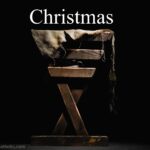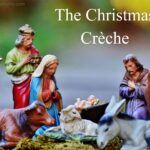
Some people mistakenly claim that the Christmas holiday is based on ancient pagan celebrations and that Catholic traditions are rooted in pagan customs from long ago.
It is easy to compare and find similarities in ancient celebrations. Even though they were celebrated by different people in different times and places, their decorations, music, and food were often alike and dates overlapped.
While early Christian religious observances might resemble pagan celebrations, Catholics firmly refused to participate in pagan feasts or to worship false gods and political leaders. For this they were persecuted and even killed.
Catholics have always only worshipped the one true God and have celebrated the birth of Jesus since the earliest days of the Church.
In the first few centuries of the Church, Christmas was celebrated on different days throughout the year, including December 25 which eventually became the common date for the Catholic Church in the West.
Some claim that December 25 was chosen because it was the date of the pagan festival of the sun god, Sol Invictus, or the end of the Roman celebration of Saturnalia. But the celebration of Christmas actually came first.
There is biblical and historical evidence that the date of Jesus birth could be December 25 but no one knows for sure. Regardless, on that date, the Catholic Church celebrates the fact that Jesus was born and God became man.
Early Catholics did not reject everything from pagan culture. Pagan buildings, philosophy, and names of months and days of the week have been preserved by the Church and repurposed to worship the one true God.
Early Catholics were killed for rejecting pagan beliefs:
Then Paul stood up at the Areopagus and said: “You Athenians, I see that in every respect you are very religious. For as I walked around looking carefully at your shrines, I even discovered an altar inscribed, ‘To an Unknown God.’ What therefore you unknowingly worship, I proclaim to you.”
Acts 17: 22-23
Celebrating Christmas long before pagan influence:
More Jewish than pagan:
Biblical and historical vidence for December 25:
Wise pastoral intuition suggested to the Church the christianization of the notion of Sunday as “the day of the sun”, which was the Roman name for the day and which is retained in some modern languages. This was in order to draw the faithful away from the seduction of cults which worshipped the sun, and to direct the celebration of the day to Christ, humanity’s true “sun”. Writing to the pagans, Saint Justin uses the language of the time to note that Christians gather together “on the day named after the sun”, but for believers the expression had already assumed a new meaning which was unmistakeably rooted in the Gospel. Christ is the light of the world, and, in the weekly reckoning of time, the day commemorating his Resurrection is the enduring reflection of the epiphany of his glory.
Pope John Paul II, Dies Domini, 31 May 1998
Connecting sun and light to Christ:
Fitting the cosmic pattern of the year:
The first commandment condemns polytheism. It requires man neither to believe in, nor to venerate, other divinities than the one true God. Scripture constantly recalls this rejection of “idols, (of) silver and gold, the work of men’s hands. They have mouths, but do not speak; eyes, but do not see.” These empty idols make their worshippers empty: “Those who make them are like them; so are all who trust in them.” God, however, is the “living God” who gives life and intervenes in history.
Catechism of the Catholic Church 2112
Christian symbolism from pagan origins:
Traditions of religions coincide with each other:
The Truth, Goodness, and Beauty of the Catholic Church
Prayer, community, and apostolate:
Share this page with friends and family to start a conversation about your faith.
Don’t miss a post. Learn more about the Catholic Church and strengthen your Catholic faith.
Find more Fiercely Catholic video issues here.
Subscribe here.

